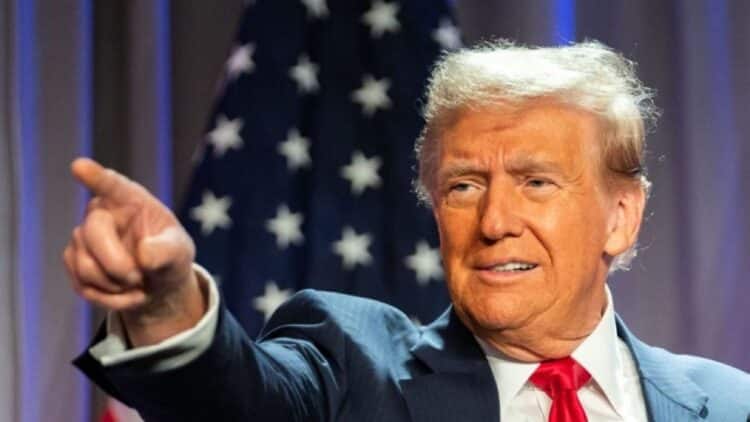In an announcement that shook the international chessboard, US President Donald Trump confirmed that they reached a trade agreement with Japan to set mutual tariffs. He made it public on his Truth Social network, where he assured that it is a “giant” pact that will bring billions in investments and will avoid the tariff hike scheduled for August.
An important step to avoid higher tariffs
On Tuesday, Trump dropped the news: the two countries sealed a deal setting a 15% tariff on a reciprocal basis. According to what he said, it was necessary to reach an understanding before August, when the United States planned to raise duties on Japanese imports from 10% to 25% if there was no settlement.
Apparently this step, defuses that threat, “We just closed a massive deal with Japan,” Trump wrote on Truth Social, making it clear that he is proud of the move. He also promised that Japan will invest $550 billion in the U.S. economy, something he said will create hundreds of thousands of jobs.
Similarly, part of the deal also includes Tokyo opening its market to more agricultural products and cars made on U.S. soil, a major blow to Japan’s auto industry, which employs 8% of its workforce.
Japan asks for time to review each clause
From Tokyo, Shigeru Ishiba preferred to indicate in front of the Japanese press, he clarified that before making firm comments, his team will review each clause with a magnifying glass. “I cannot comment until we carefully examine the details,” he said. The prime minister knows that such pacts arouse domestic tensions, especially in sensitive sectors such as agriculture.
Rice, for example, has always been an almost untouchable product for Japan, but with this agreement, Tokyo will further open its market to exports from the United States and this is causing discomfort among agricultural unions and local producers. All this is happening while Ishiba is facing political attrition: just a few days ago, his party suffered a setback in the Upper House elections.
It is worth mentioning that although the new deal clears up doubts about immediate tariffs, other issues remain on the table: steel, aluminum and automobiles will continue to be under review. However, these are points that Tokyo has been demanding for some time and which have not yet been fully resolved.
What is at stake for both countries in the medium term
Japan is not just any partner for Trump; it ranks fifth among his major markets, contributing more than $148 billion to bilateral trade, representing 4.3% of all US foreign exchange. For Trump, securing bilateral pacts before the August deadline is vital. In addition to the agreement with Japan, his team closed similar arrangements with the Philippines, Vietnam, Indonesia and the United Kingdom.
In addition, the White House announced that Indonesia will eliminate tariffs on almost all US products while the White House will lower tariffs on Indonesian products from 32% to 19%. This is part of Trump’s strategy to change the rules of international trade his way sectors such as the Japanese automotive industry will be watching to see if this pact gives them breathing room or further complicates their business with the US.
With this agreement, Trump shows that his policy of tariff pressure is still alive and gives new impetus to his economic discourse, but for Japan, on the other hand, it starts an internal process of adjustments and debates to protect key sectors without breaking with Washington. For now, both governments celebrate having avoided a tariff hike that could have hit their economies, what remains is to turn these promises into facts and define how beneficial it will be for both countries.


